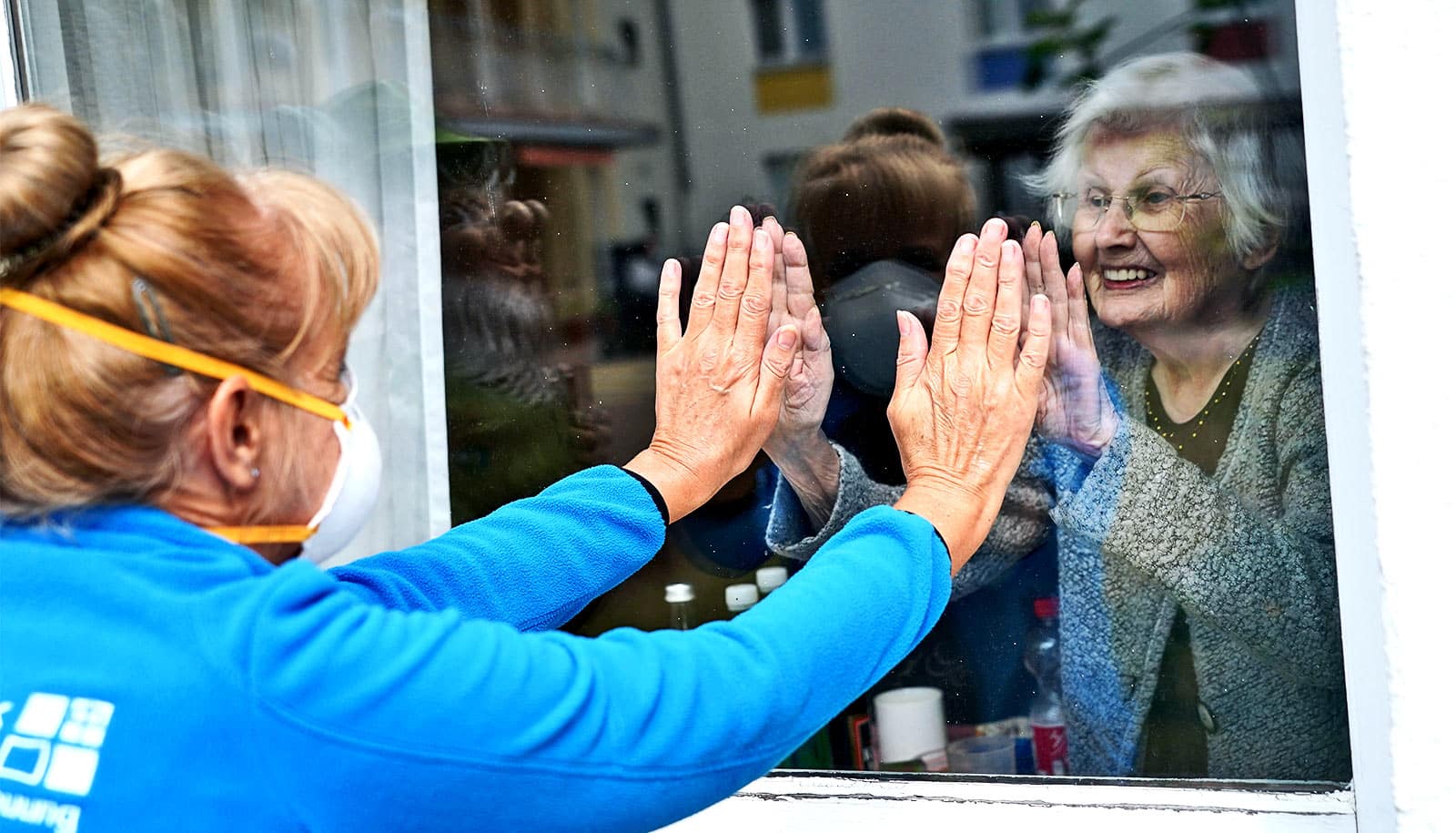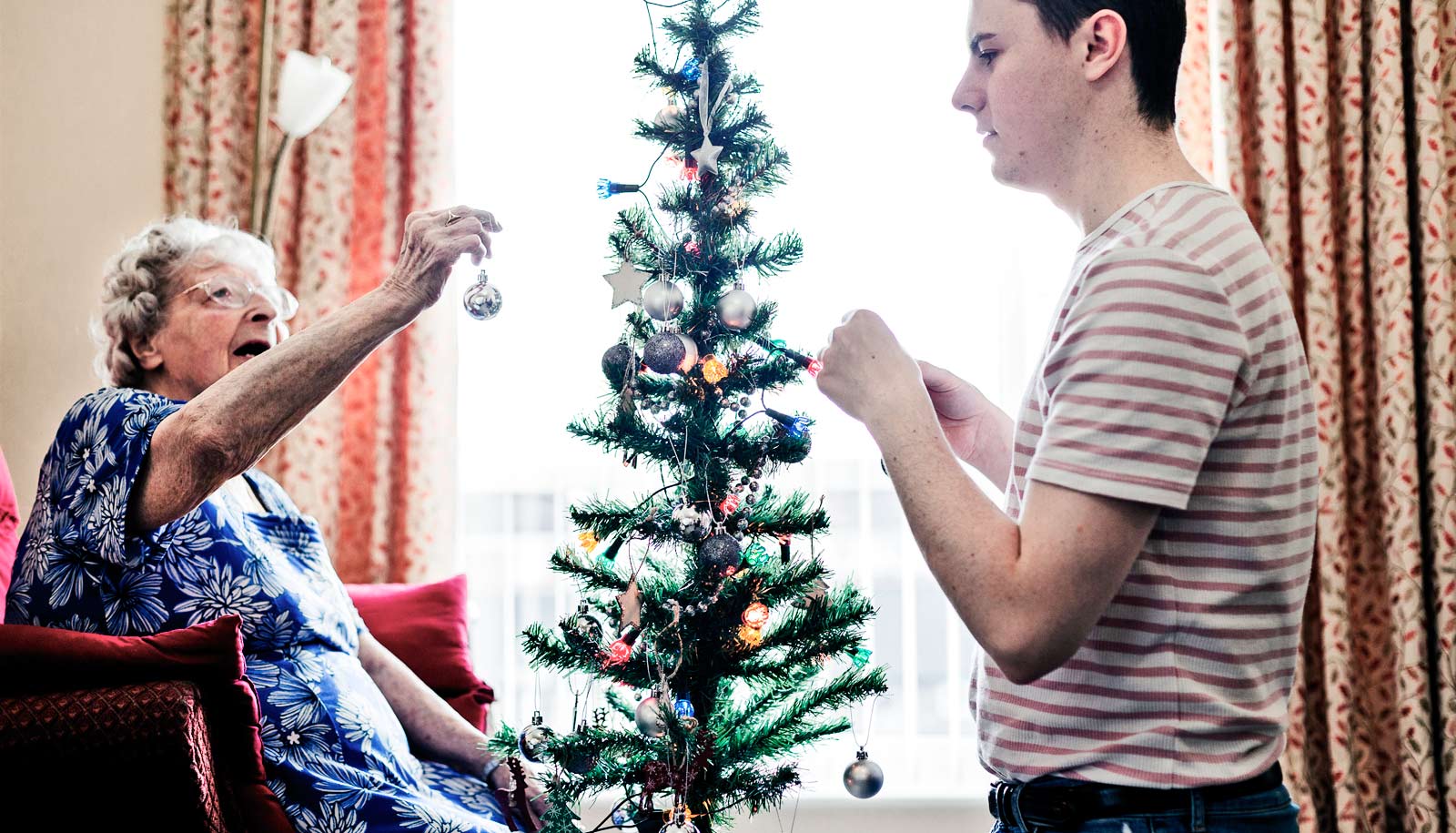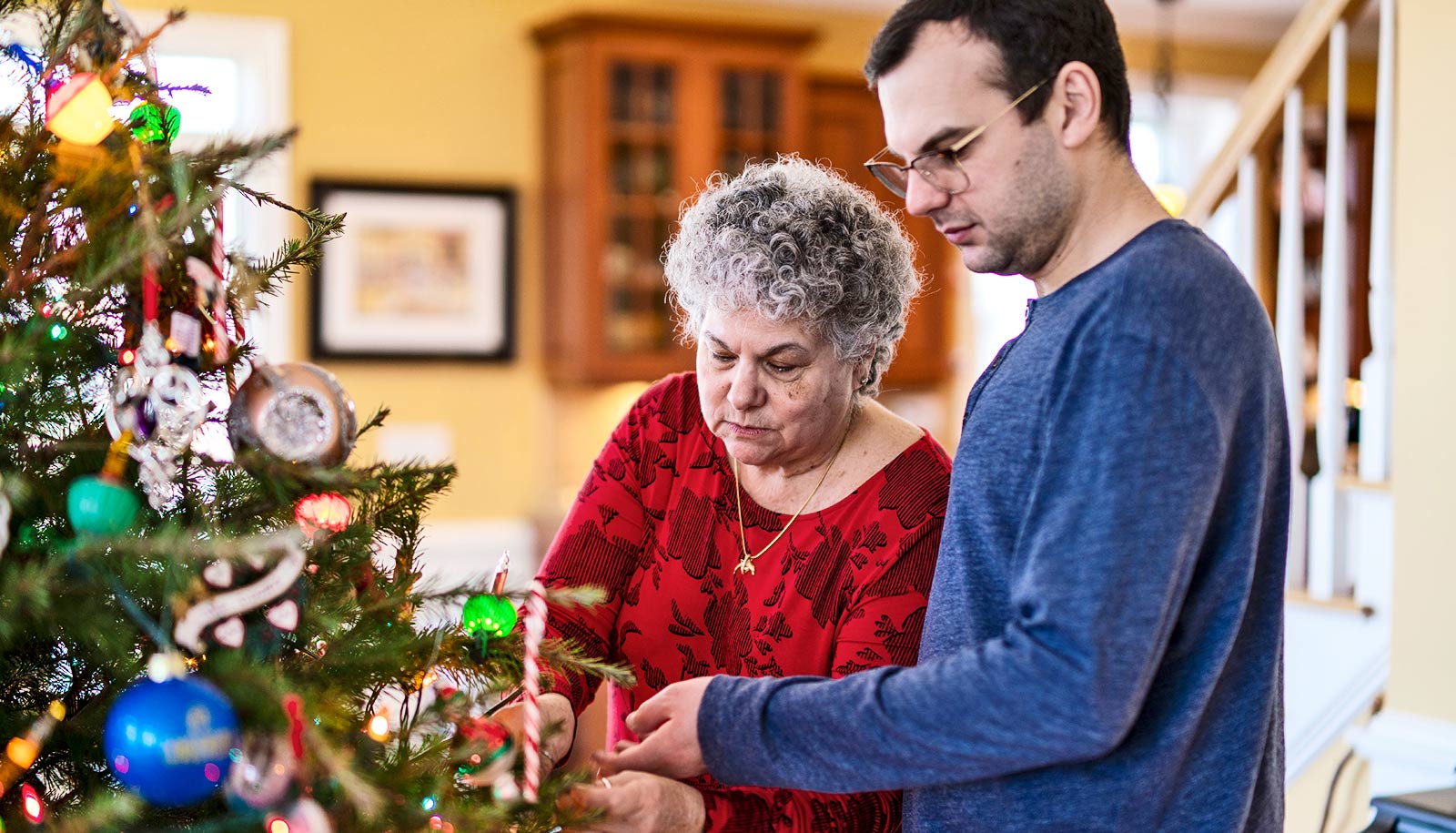
(Credit: Sean Gallup/Getty Images )
Is it safe to visit family in nursing homes this holiday?
Can you visit nursing homes safely as COVID-19 rages on through the holidays? An expert explains what's safe and how you can protect your loved ones.
Families should exercise caution when planning a visit to a loved one in a nursing home during the third wave of the coronavirus pandemic, Valerie Cotter argues.
The first publicized US outbreak of coronavirus took place in a nursing home in King County, Washington, in late February. A reported 81 nursing home residents were infected, as were 34 staff members and 14 visitors. As a result of the facility’s transmission control efforts, residents were confined to their rooms and visitors were prohibited, raising concerns from patients’ rights advocates and the residents’ families.
But as the United States faces its third wave of the coronavirus pandemic and an average of more than 160,000 new cases of COVID-19 a day and climbing, restrictions on nursing home visitations are on the rise.
The US Centers for Medicare and Medicaid Services, which oversees thousands of nursing homes across the United States, issued guidance recently urging nursing home directors to discourage residents from leaving facilities for home visits with their families during the holidays.
Here, Cotter , an associate professor at the Johns Hopkins University School of Nursing, a principal faculty member of the Center for Innovative Care in Aging, and a nurse practitioner in the Memory and Alzheimer’s Treatment Center, breaks down the nuances of nursing home visits during the coronavirus pandemic and what families should keep in mind when planning a holiday visit if permitted by their state:
The post Is it safe to visit family in nursing homes this holiday? appeared first on Futurity .
In the very first wave of the coronavirus pandemic, we saw nursing homes lock down visitations to prevent the spread of illness in their facilities. Why is it a last-resort option for governments to restrict nursing home visitation when it’s such a vulnerable population in the first place?
There are two reasons. The first is that not all nursing homes are the same, and there are different levels of care in nursing homes. There’s skilled care, there’s hospice care. And so their needs are different. The other reason is that nursing homes are part of a community, and across the United States, each community is affected in a different way in terms of case rates and death rates. And so blanket policies prohibiting visitation to any nursing home in the US just don’t make a lot of sense.
Older adults are at high risk for severe COVID-19—they’re frail, they have medical comorbidities, or they have functional impairments that prevent them from taking care of themselves—and it’s of course important that we keep them as safe as possible. But we also don’t want to restrict their autonomy in such a severe way. And so the idea of restricting access to nursing homes across the country needs to be balanced with the rights and well-being of those individuals that reside in nursing homes and the health care workers that care for them.
It’s hard because especially very frail, cognitively impaired people really need that socialization. I’m a nurse practitioner at the Memory and Alzheimer’s Treatment Center, and I know how this coronavirus has affected people living at home, in terms of not having access to adult day care or other routines and social activities that they’re used to. It can really create more behavioral disturbances, depression, or social isolation . Social interaction, activity, and being with people that care about them is really important for nursing home residents’ quality of life.
I imagine that family visits help provide necessary structure and routine for nursing home residents.
It does. But remember, too, that when a person is living in a nursing home, they have care staff, nursing assistants, and nurses that are there with them. They become their second family, if you will. They don’t replace their primary family, but they get used to those people taking care of them and being with them, establishing relationships with them. It’s not like your own family, but I think that nursing home staff really do to try to provide the kind of care that their family member would like them to receive.
Do you expect there to be a rise in nursing home COVID cases as a result of the holidays?
Yes. I’m sure that each nursing nurse has their own policies around if residents can leave or receive visitors and what that involves. But that’s also only half of the equation, because the people that provide care in nursing homes are also going to be with family members for the holidays before coming back to work to care for the nursing home residents. If they’re not being cautious with their own holiday activities, they’re going to be bringing the illness back to the nursing home. So, yes, there’s a lot at stake here.
What are some of the precautions someone should take if they’re visiting a loved one in a nursing home or planning to bring a loved one home for a visit?
They should call ahead and talk with the nursing home staff about what their policies and procedures are. That way it’s not a surprise for the family or facility staff and everyone knows what to expect. The State of Maryland doesn’t define compassionate care in its order, so I would advise Maryland families to talk with the nursing facility about the visit.
In some parts of the country, the residents might be able to visit with family members outside, which is nice and cuts down on risk. But that of course is weather-permitting.
Is there anything else that you wish more people understood about the nuances of the situation for nursing home residents and their families?
It’s a hard position to be put in. A person who’s living in a nursing home is there because they have such health care needs or functional needs that they can no longer be alone or their family can’t take care of them. But they live in a community now where they need to respect and adhere to policies that, were they living on their own, they wouldn’t need to be thinking about. But nevertheless, they and their families need to consider how their behaviors can affect other people in the nursing home—the residents and the care staff. I think that that could be really challenging, because it’s not just about what they and their family want—they have to consider the community where they live and abide by those policies.
Share this article:
This article uses material from the Futurity article, and is licenced under a CC BY-SA 4.0 International License. Images, videos and audio are available under their respective licenses.
Related Articles:
How people with dementia can best enjoy the holidays
Dec. 12, 2019 • futurityHow dementia caregivers can cope with the holidays
Dec. 6, 2022 • futurityLinks/images:
- https://www.futurity.org/nursing-home-shortages-ppe-covid-19-2426792-2/
- https://nursing.jhu.edu/faculty_research/faculty/faculty-directory/valerie-cotter
- https://www.futurity.org/caregiving-at-home-nursing-home-covid-19-2366552-2/
- https://www.futurity.org/visiting-nursing-homes-holidays-covid-19-safety-2477982/
- https://www.futurity.org


